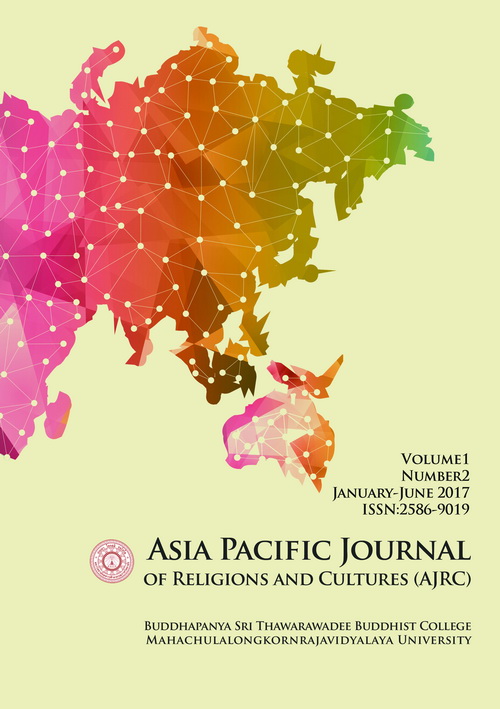Human Nature and Peace: Theravãda Buddhist Philosophical Investigation
Main Article Content
Abstract
An attempt was made to philosophically address the concept of peace in Theravãda Buddhist philosophical viewpoint. In doing this, firstly, a Buddhist concept of man is discussed to investigate deeply into its nature to find out the place of peace. In this part, two important questions are asked: 1) what is human nature? 2) what is peace? Secondly, the relationship between human nature and peace is also discussed. According to Theravãda Buddhist philosophical viewpoint, human nature is conditioned and thereby is peace. In this article, I, by virtue of human nature, argued that the peace in question whether it is impermanent or permanent is a human being’s product and the only peace produced by human being is the only peace that we really need especially in global society.
Article Details
References
Anguttaranikaya. (1999). Chaμμa Sagāyanā, (version III). Vipassanā Researcg Institute, Dhammagiri, Igatpuri. India: Nasik Maharashtra.
Encyclopedia of Buddhism. (2003). Robert E. Buswell, Jr., (Ed.). New York: Thomsom Gale.
Kalupahana, D. J. (1987). The Principles of Buddhist Psychology. Delhi: Sri Satguru.
Majjhimanikaya. (1999). Chaμμa Sagāyanā, (version III). Vipassanā Researcg Institute, Dhammagiri, Igatpuri, India: Nasik Maharashtra.
Nyanatiloka. (1987). Buddhist Dictionary: Manual of Buddhist Terms and Doctrines. Taiwan: The Corporate Body of the Buddha Educational Foundation.
Phra Prayudh Payutto. (1995). Buddhadhamma: Natural Laws and Values for Life. Olson Grant A. (trans.). New York: University of New York Press.
Saṃyuttanikāya. (1999). Caμμha Sagāyana, V.III, Vipassanā Research Institute, Dhammagiri, Igatpuri. India: Nasik Maharashtra.
The Kindred Sayings. (2005). (Part III). F. L. Woodward, (trans.). Delhi: Motilal Banarsidass.


